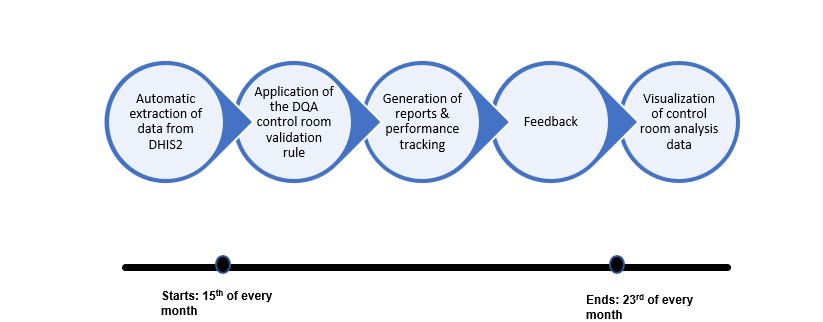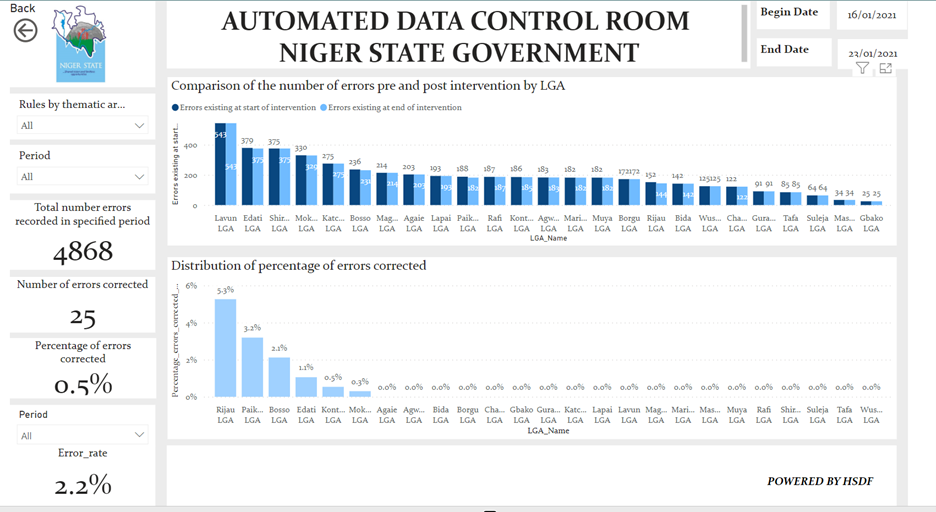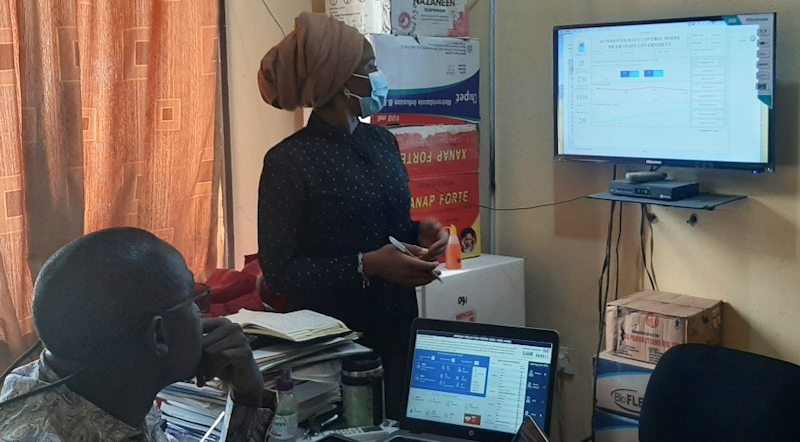Niger State Adopts Automated Control Room Process
Background
A review of key program indicators reported by health facilities in Niger State revealed some challenges with reported data quality. To mitigate these challenges, a data quality-focused control room was launched in 2014, targeted at ensuring enhanced reporting rates on the National Health Management Information System (NHMIS).
The control room is a government-led and partner-supported intervention that seeks to improve the quality of health data on District Health Information Software2 (DHIS2). It achieves this by flagging errors/ inconsistencies and ensuring they are promptly corrected. The control room is currently being implemented in Lagos, Kano, and Niger states. It has been lauded as a major contributor in driving improved accuracy of the data on the platform. This post details the interventions that led to automating the control room process in Niger State.
The Traditional Control Room Process
In the past, the Niger State Control Room draws stakeholders from departments and agencies of the state Ministry of Health. It convenes them physically with the objective of tracking, identifying, and resolving data issues in real-time.
The implementation of the traditional control room process is mostly manual. On average, it takes five to seven days to complete the process. It begins with DHIS data download by the state M&E officers. The downloaded data is pasted on the excel error tracker, which scrutinizes the data and flags errors. These errors are reviewed, followed by calls to the LGA and health facilities to communicate the inconsistencies and request updated data.
This process typically takes seven days, from flagging the errors to correcting them; thus, making it cumbersome. Although the control room intervention has been instrumental in generating health data for the state, it can be prone to human errors from the manual processes.
The Automated Control Room Process
To address the challenges of the traditional control room, Health Strategy and Delivery Foundation (HSDF), supported the state to develop an automated Data Quality Assessment (DQA) control room web-based tool in November 2020; thereby providing the state with an automated platform for real-time control room data validation analysis.
Advantages of the automated control room over the traditional process are as follows:
• Reduces completion timeframe.
• Reduces possible discrepancies from excel-based desktop data validation tool.
• Provides real-time feedback to data entry officers.
• Effectively tracks key health indicators and programs.
• Visualizes and improves dissemination of the control room analysis.
• Simplifies the existing error resolution process.
Implementation of the Automated Control room Process

Data is automatically extracted from the DHIS2 platform from the start of the control room on the 16th of every month and analyzed on a web-based google excel sheet predesigned with validated control room validation rules. Instant feedback from the analysis on the quality of data is generated and then visualized on a web-based data dashboard. From the 16th of every month, the LGA and state M&E officers get an email notification daily containing the error logs that need to be corrected. The process ends on the 23rd of the month, and M&E officers at the State, LGA, and health facility levels make corrections based on feedback.
After that, the error resolutions are visualized on a web-based dashboard. See sample dashboard for Niger State here. Once this populates, the control room officer and M&E officers receive an email notification.
This automated control room process has also been introduced in Lagos State, with HSDF’s support. Having implemented the process in both states over a period, we hope to scale up to other states to ensure quality data for better-informed decision-making.

Figure 2: Screenshots of the automated control room dashboards 

Grants and Business Development Specialist
We are seeking a highly motivated and experienced Grants and Business Development Specialist to join our organization. The successful candidate will be responsible for identifying funding opportunities, developing grant proposals, and fostering partnerships with potential donors and stakeholders (regional and global). This role plays a vital part in securing funds and resources to support our organization’s mission and projects.
Apply NowPublic Health Consultant, Guinea
The consultant (working with the Accelerator team) will collect results from the tool, organize a meeting with stakeholders to discuss results from the tool, and produce a report on key findings and recommendations from the tool to be shared publicly.
Apply NowPublic Health Associate, Senegal
We are currently in search of an experienced Public Health professional in Senegal to work on the anticipated Nutrition Capacity Development and Financing Platform and provide technical assistance to elevate nutrition financing and strengthen local capacity to support these efforts. The Associate must be bilingual (English and French).
Apply Now